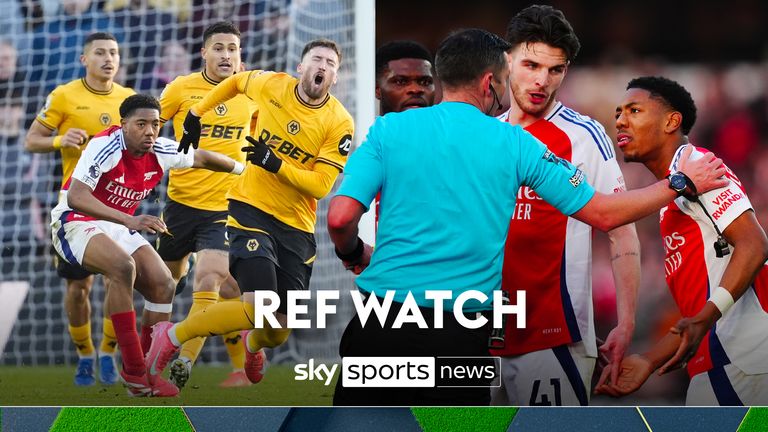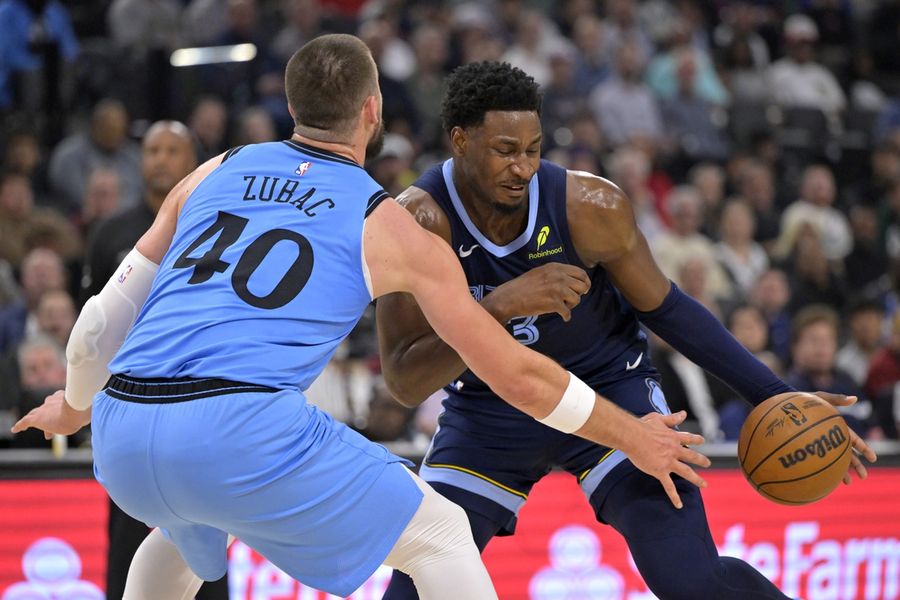Howard Webb says Myles Lewis-Skelly’s red card against Wolves was the wrong decision – but defended referee Michael Oliver and his officials by saying the call was not a “horrendous” one.
Lewis-Skelly was controversially sent off by Oliver in the first half of Arsenal’s 1-0 win over Wolves for fouling Matt Doherty, a decision which was later overturned after an appeal by Arsenal, who were handed a £65,000 fine for their on-field reaction to the red card.
In the latest episode of Match Official’s Mic’d Up, where the referee’s audio was released, VAR Darren England showed no desire to send Oliver to the VAR monitor, with no input from the assistant referees in the decision-making.
PGMOL chief Webb believes England should have intervened to notice the “glanced studs” from Lewis-Skelly that should have kept him on the pitch – despite the assistant VAR referencing it in the audio.
“From the outset, we would prefer a yellow card in this situation,” said Webb on the latest episode of Match Official’s Mic’d Up.
“Clearly the referee on the day felt the actions of Myles Lewis-Skelly, he saw the player moving in towards an opponent without any ability or intention of playing the ball – with the intention of stopping the opponent. And the referee sees a raised foot make high contact and the opponent went down.
“The referee felt it was serious foul play, the VAR checked the footage to see if the call was clearly and obviously wrong and he felt it wasn’t – seeing that the contact was quite high up on the leg.
“But we know that for serious foul play, we need excessive force or brutality and what we see here is that high contact [just] glancing and coming off the leg quite quickly.
“So for that reason, everybody pretty much in the game has formed the same conclusion that this is falling short of serious foul play – because of that glancing contact. Because the studs don’t really go right into the leg, they glance in before coming down onto the foot.”
Webb: I understand Oliver’s thinking – it’s not a horrendous call
The decision to send Lewis-Skelly off caused great debate in the game. Among widespread criticism, Sky Sports’ Micah Richards said it was “the worst decision I’ve ever seen in Premier League football history”.
Webb believes there were some criteria in the Lewis-Skelly challenge to send him off, but the overall evidence pointed towards a yellow card.
“There are some considerations that might support a red card, but there are a whole host of others that say it is not quite there, so on balance we would rather this had been a yellow card,” said Webb.
“The VAR didn’t want to re-referee the situation, they were mindful of the referee’s call standing unless it is clearly and obviously wrong. They felt it wasn’t at that level on the day and decided to leave it as a red card on the field.
“I’ve heard this described as a really horrendous officiating decision. It’s not! I understand why the referee saw this on the day as a serious foul-play action.
“We have to be careful about slowing things down and freeze-framing things. We’ve talked about not doing that, it can distort reality. We have to look at it in full speed, it is glancing [studs] and does come off quite quickly.
“But it’s an understandable on-field decision. Yes we feel the VAR should have been involved, but at the same time I can kind of understand why that didn’t happen in the moment.
“We listen to the game, we feed back to the officials to try to ensure that we are in line with the expectations of the game and how we judge these things.”
Webb: Oliver abuse ‘wholly unacceptable’
In the days following the incident, referee Oliver received social media abuse which the PGMOL described as “appalling.”
The refereeing body contacted the police and a number of investigations were launched. Oliver returned to refereeing straight away, taking charge of the Ipswich vs Southampton and Everton vs Liverpool fixtures in February.
“Really disappointing,” said Webb about the abuse directed at the officials following the Lewis-Skelly call.
“We know criticism comes our way, it’s part and parcel of the job. Everyone on the field does get criticised to some extent, managers do as well. But there’s a line, isn’t there?
“Nobody should be subject to threats, their families shouldn’t be subject to threats – whether that be officials or players. We have seen all participants being exposed to those sorts of things.
“So, really disappointing in that respect. People won’t always want to agree with the decision – yes they can criticise where they feel that is justifiable – but not to the level we saw in this situation where it led to threats against the referee, the officials in this game and their families. It’s wholly unacceptable.”









